Description
ABSTRACT
Turnover Assessments: Tax Treatment of Recharges under the Companies Income Tax Act
Maxwell Ukpebor*
This article examines the tax treatment of Recharges on assessment based on Turnover (Turnover Assessment) in cross border transactions. Where the assessable profits of a company are not ascertainable or less than might be expected, the Federal Inland Revenue Service (FIRS) has the discretion to subject a fair and reasonable percentage of the turnover of the company to tax at the rate of 30%. In practice, FIRS subjects 20% of the turnover to tax especially where the company is a non-resident company. Where a non-resident company carries on any business in Nigeria, it usually does so directly or indirectly through local entities (mostly subsidiaries set up for such purpose). These subsidiaries normally incur costs that will be reimbursed by/recharged to the non-resident company. The tax treatment of these reimbursed/recharged costs in the hands of the non-resident company under Turnover Assessment is not yet settled. While FIRS is of the view that taxpayers cannot treat Recharges or any other expenses as allowable against the 20% of the turnover deemed to be the assessable profits of the company, on the ground that the 80% of the turnover (that is not assessed under Turnover Assessment) accommodates all the expenses the non-resident company may incur, most taxpayers view it differently. This calls for the interpretation of Section 30 of the Companies Income Tax Act.1 It is our expectation that this article will clarify this issue.
INTRODUCTION
The profit of a Nigerian company2 from whichever source – within or outside Nigeria – is taxable in Nigeria.3 This confers extra territorial jurisdiction on the taxing authorities in Nigeria, over a Nigerian company. This is summed in the expression – a Nigerian company is taxable in Nigeria on its worldwide income. The non-Nigerian company (non–resident company) is taxable in Nigeria only to the extent of the profits derived by it from Nigeria.
The Tax Authorities in Nigeria employ various methods of assessments. Generally, tax assessment can be classified into two broad categories. These are:4
a. Self-Assessment: The taxpayer carries out a voluntary self-assessment. The taxpayer submits the self-assessment notice and an evidence of payment to the FIRS at designated collecting banks, along with the tax returns.
b. Assessment by the Tax Authority: -This classification includes:
i. Assessment based on audited accounts and computations filed by the taxpayers.
ii. Best-of-judgment (BOJ) assessment based on estimated profit or profit perceived to be fair and reasonable.
* Partner, WTS ADEBIYI & Associates, Founder/Editor in Chief, Tax Law Reports of Nigeria (TLRN) and Tax Law Journal of Nigeria
- CAP C21, Laws of the Federation of Nigeria, 2004
- Any company incorporated under the Companies and Allied Matters Act or any enactment replaced by the Act. Section 105 of CITA
- Section 13(1) CITA
- FIRS Circular 2008/06

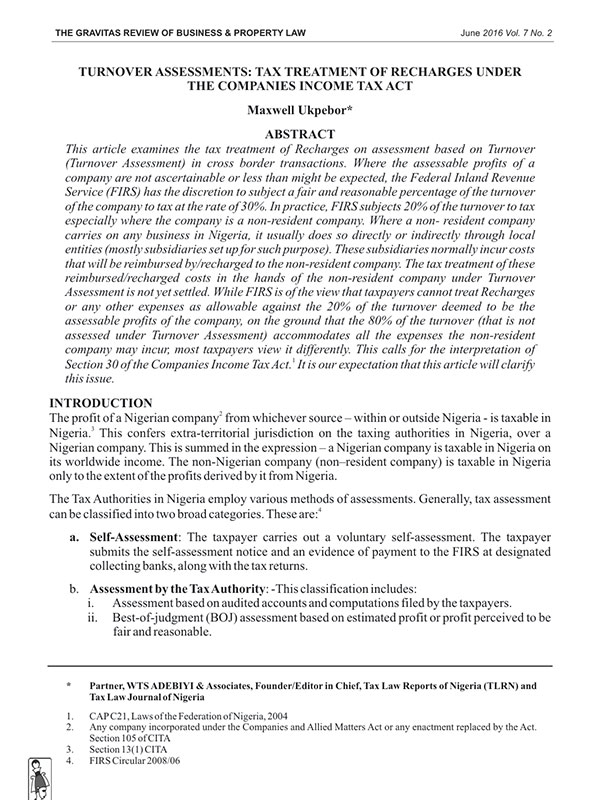
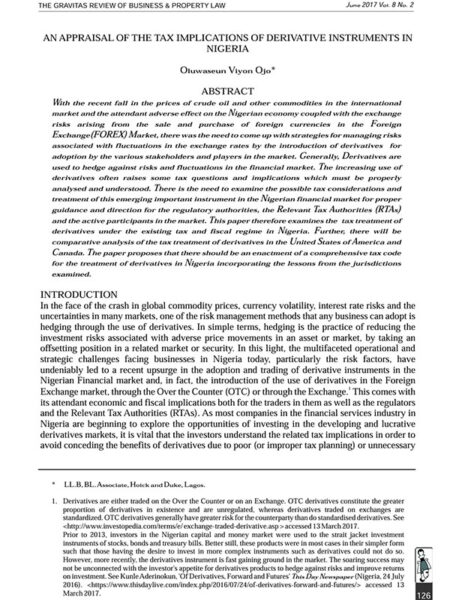
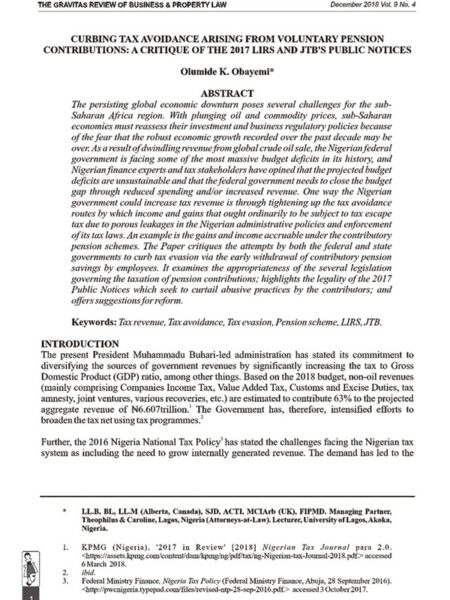
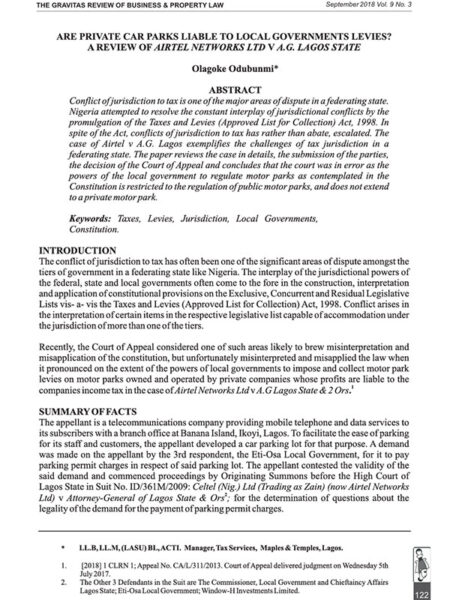
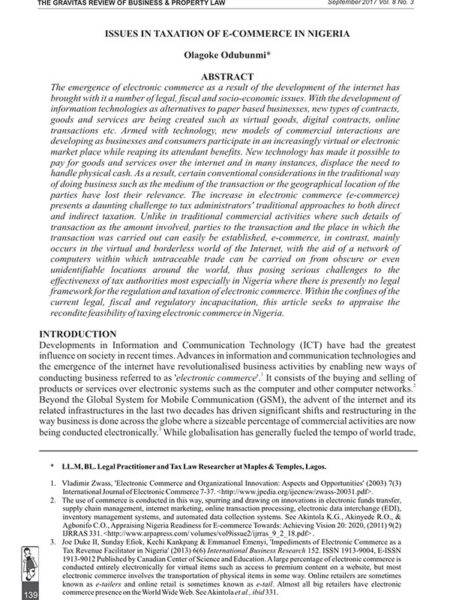


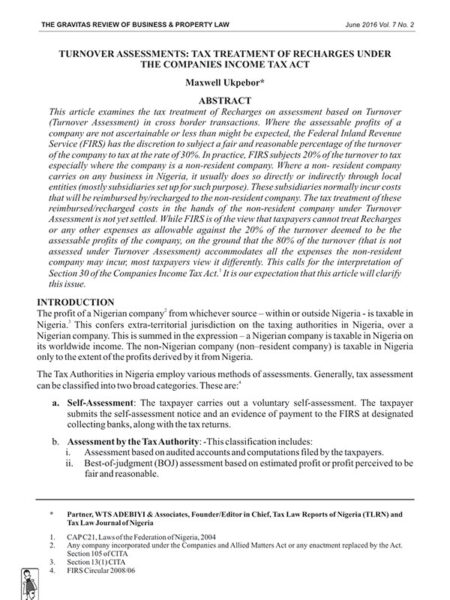
Reviews
There are no reviews yet.